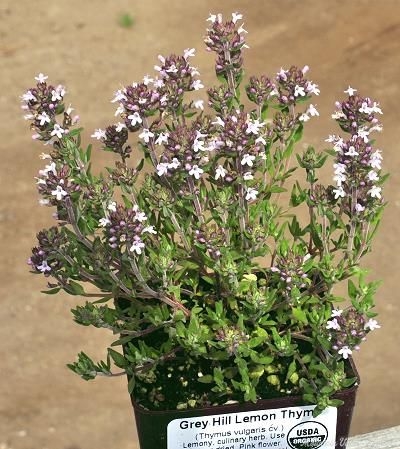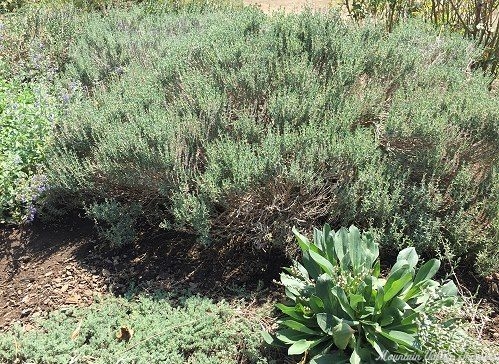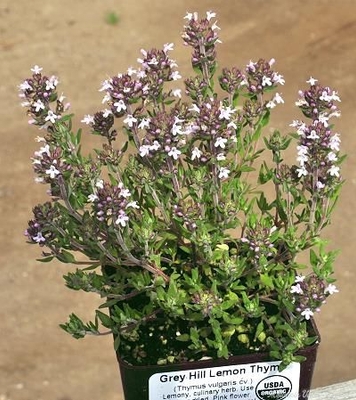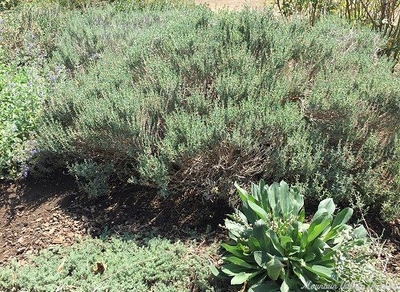'

Grey Hill Lemon Thyme is a chance seeding probably from Thymus vulgaris, or English Thyme, and Thymus citriodorus or Lemon Thyme. It has a wonderfully pungent scent and flavor and can be used in any recipe calling for Thyme or Lemon Thyme.
Grey Hill is a smaller version of both of its parents. It is ideally suited to small gardens or containers. After it blooms in early spring, it should be pruned lightly to remove spent blooms.
Grey Hill is an important early blooming plant for bees, butterflies and beneficial insects.
Grey Hill Lemon Thyme would make a great addition to our Small Space Herb Garden Six Pack.

This Grey Hill Lemon Thyme (the taller thyme in the back) is around 15 years old. It grows bigger by laying stems in the ground and essentially making another plant. Seeds can also drop take hold and create new plants around the garden. If you grow more than one kind of thyme, the plants can cross and new seedlings may not be like the parents. We have pulled more than one seedling out that had no lemony aroma. The dead spot in front of this thyme was caused by a plant that was growing too close to it. When we removed it, it revealed a dead spot. By next spring, this spot will most likely be covered up by newer stems. The ground cover thyme in the foreground is the unique Silver Needle Thyme; an underused ground cover thyme that adds a silvery touch to the landscape. The larger leaved plant to the right is German Statice.
You might try Lemon Thyme as a replacement.


